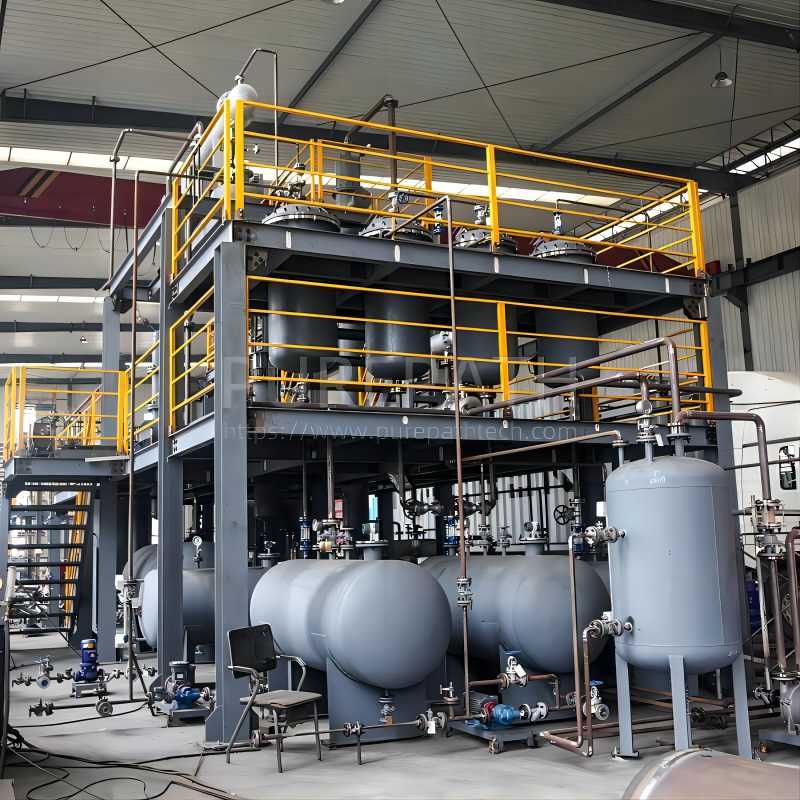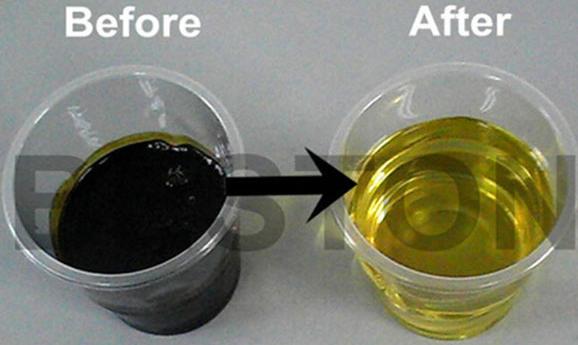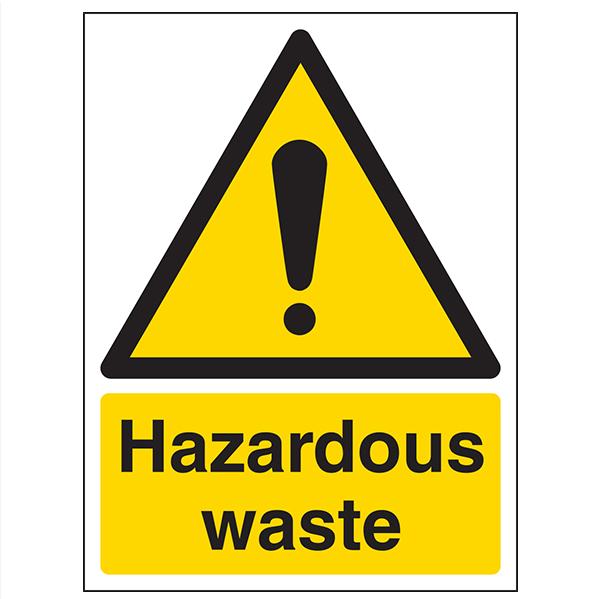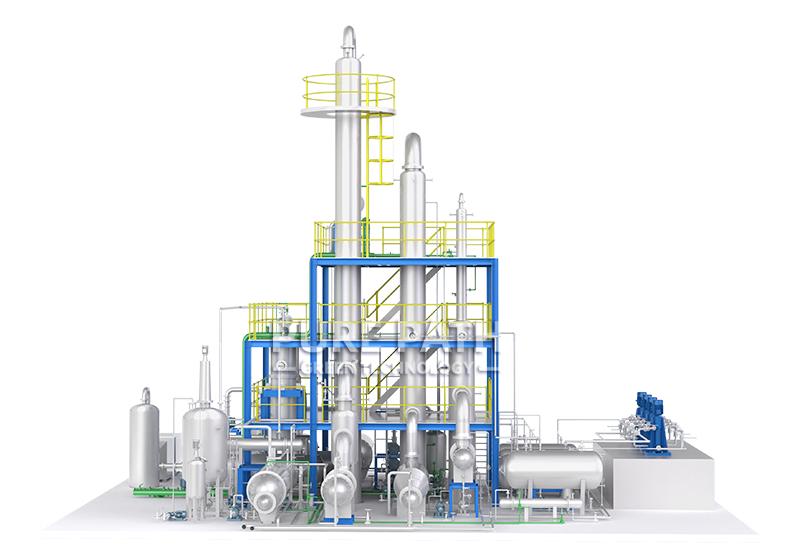Is Used Engine Oil a Hazardous Waste?
The US Environmental Protection Agency (EPA) defines used engine oil as any oil that has undergone physical or chemical changes while being used for lubrication or cooling in an engine, including contamination with dirt, metal shavings, or water. This definition encompasses oils used in personal vehicles, motorcycles, lawnmowers, and other gasoline or diesel-powered equipment. Notably, disposal guidelines may vary for vegetable-based or synthetic oils.
Proper management and disposal of used engine oil are crucial for preventing environmental harm and promoting sustainable waste practices. Beyond compliance with regulations, responsible disposal contributes to recycling and reusing efforts. Differentiating disposal methods for vegetable-based or synthetic oils is essential due to their distinct chemical compositions and biodegradability rates compared to traditional mineral-based oils.

Acknowledging the diverse range of applications, including various gasoline or diesel-powered equipment, emphasizes the need for a comprehensive approach to waste management in the automotive and industrial sectors. Recycling facilities play a vital role in re-refining used engine oil, removing contaminants, and restoring it to a reusable state, thereby conserving resources and minimizing environmental impact.
What Types of Businesses Generate Used Engine Oil?
A wide variety of businesses generate used engine oil, categorized into two main groups:
1. Businesses that use engines in their operations:
A. Vehicle Maintenance:
- Auto repair shops: This includes general repair shops, quick lube shops, dealerships, and tire shops.
- Fleet maintenance facilities: Companies that manage large fleets of vehicles, like buses, trucks, or taxis.
- Government motor pools: Public agencies that maintain fleets of vehicles for various purposes.
B: Industrial and Manufacturing:
- Metalworking industries: Machine shops, factories, and other businesses that use machinery with engines.
- Construction companies: Companies that use heavy machinery like excavators, bulldozers, and generators.
- Marinas and boatyards: Businesses that service and maintain boats, which use engines.
- Generators and power plants: Facilities that use large engines for power generation.

2. Businesses that collect or handle used engine oil from others:
- Service stations: These may offer oil change services and collect used oil from customers.
- Recycling companies: Businesses that specialize in collecting and processing used oil for recycling.
- Waste management companies: Companies that offer disposal and recycling services for various types of waste, including used oil.
3. Additional notes:
Even businesses that don’t directly use engines may generate used oil from equipment like generators or backup power systems.
The amount of used oil generated by a business depends on various factors, such as the size of its fleet, the type of equipment it uses, and the frequency of oil changes.
Is Used Engine Oil a Hazardous Waste?
Used engine oil operates in a regulatory gray area, not explicitly labeled hazardous by the EPA but demanding specific regulations due to its environmental impact. Laden with contaminants like metal shavings and water, improper disposal risks polluting soil and waterways, posing threats to ecosystems. Its toxicity adds complexity, yet its potential for recycling as lubricating oil sets it apart from traditional hazardous wastes.

Proper handling and responsible disposal are imperative to prevent environmental damage. While not federally designated as hazardous, used engine oil warrants distinct treatment. Designated recycling programs and authorized facilities offer solutions, ensuring environmentally responsible management. Stakeholders must embrace their role as environmental stewards, recognizing the dual nature of used engine oil – a potential hazard and a recyclable resource. By adhering to regulations, participating in recycling initiatives, and utilizing authorized facilities, we can strike a balance between environmental protection and resource repurposing, steering towards a sustainable future.
How Can You Recycle Used Engine Oil?
1. Designated Drop-Off Locations:
- Auto Parts Stores & Repair Shops: These are often the easiest and most widely available options. Many national chains like Jiffy Lube, AutoZone, and Walmart accept used oil for free. Check with your local store for details and any quantity limitations.
- Municipal Recycling Centers: Contact your local center to see if they accept used oil. Some have designated drop-off days or permanent stations, while others may not accept it due to local regulations.
- Hazardous Waste Collection Events: Your community might organize periodic events for collecting hazardous materials like used oil. These events offer a convenient way to dispose of oil while ensuring proper handling.
2. Oil Filter Recycling:
You can choose to use a used oil recycling machine to recycle your used engine oil.
Some used oil recycling plant manufacturers have specific take-back programs. Check with the brand you use for details and participating locations.
3. Home Collection Services:
Certain companies offer home pick-up services for used oil, particularly if you have a large quantity. Research reputable companies in your area and inquire about service availability, fees, and container requirements.

By What Processes Can Recycle Used Engine Oil?
There are two ways: re-refining and energy recovery. Both methods offer distinct advantages, contributing to a more sustainable future and reducing our reliance on virgin resources.
1. Re-refining:
Envision the alchemical process of turning worn-out, contaminated oil into a pristine, high-performance lubricant. Re-refining performs this remarkable feat through a multi-step journey:
- Pre-treatment: The oil undergoes a metamorphosis, shedding its rough exterior through meticulous filtration. Large contaminants, such as dirt and metal shavings, are efficiently removed.
- Distillation: Heat takes center stage, orchestrating the separation of the oil into various fractions based on their boiling points. Lighter fractions evolve into fresh, high-quality lubricating oils, while heavier ones await additional processing.
- Treating: Chemical reactions unfold, delicately removing impurities and harmful elements like metals, sulfur, and nitrogen. This step acts as a profound cleansing, rejuvenating the oil’s internal chemistry.
- Blending: The final act of creation. Treated oil fractions are meticulously blended to meet specific performance requirements, ensuring the resulting oil performs just as admirably as its virgin counterparts.
Through this transformative process, re-refining revitalizes used oil, conserving valuable resources and diminishing the need for extracting virgin crude oil. The outcome? Premium-quality lubricating oils are used across diverse industrial applications, proving that used oil can indeed rise from the ashes.
2. Energy Recovery
Not all used oil shares the same fate. For those heavily contaminated or mixed, unfit for the re-refining process, energy recovery steps in, offering a valuable second chance:
- Processing: Like a meticulous chef preparing ingredients, the oil undergoes filtration and blending to eliminate water and other contaminants, ensuring a pristine fuel source.
- Heating: The stage is set for a fiery transformation as specialized boilers heat the oil to high temperatures, unlocking its latent energy potential.
- Energy Conversion: The generated heat doesn’t go to waste; instead, it powers the production of steam, a robust workhorse harnessed to generate electricity or fuel various industrial processes.
While energy recovery may not directly create new lubricating oil, it plays a pivotal role in our energy landscape. By extracting the remaining energy value from used oil, it significantly reduces our dependence on fossil fuels, contributing to a more sustainable future powered by recycled resources.
Where Can You Seek Help For Recycling Used Engine Oil?
If you want to recycle your used engine oil, you can seek PURPATHTECH for help, PURPATHTECH is a good choice.
Established in 2007, PUREPATH stands as a prominent company specializing in comprehensive services encompassing integrated engineering design, procurement, fabrication, and project operations. Our expertise extends to the development of waste oil distillation plants, base oil solvent refining plants, and desulfurization plants specifically tailored for light oils like diesel. A key player in the global arena, PUREPATH has demonstrated its capabilities through the successful execution of numerous projects in international markets. Our commitment to excellence and proficiency in delivering customized solutions positions us as a trusted partner in the field of engineering and project operations.
So if you have any needs, please feel free to contact us.







